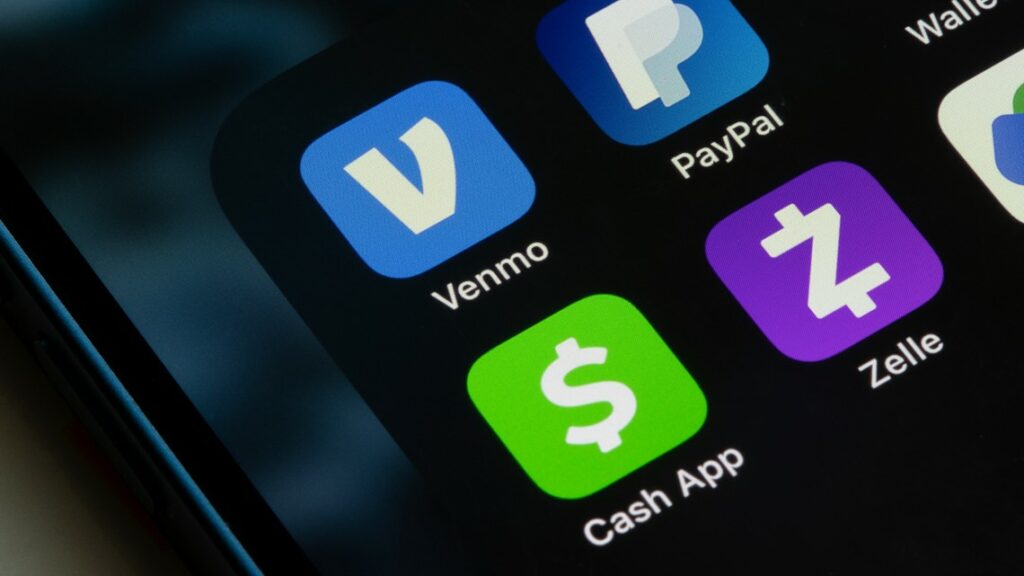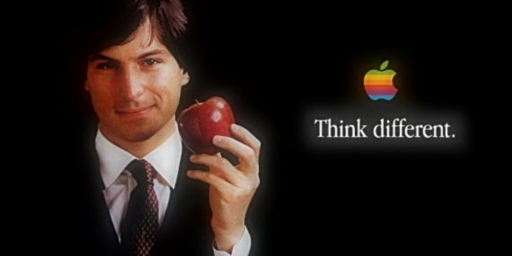Cash Apps Aren’t Banks!
Who knew?

When I saw the CNN Business headline “The CFPB warns users of payment apps like PayPal, Venmo, Cash App, and Apple Cash that their money could be at risk as FDIC insurance does not cover the apps” at Techmeme, I was rather confused. Why would I expect the FDIC to cover cash transfers?
The internal headline, “Don’t store cash in Venmo and PayPal, US regulator warns,” was equally confusing. Who the hell stores cash in an app? Apparently, lots of people.
Payment apps like PayPal and Venmo might be convenient, but they’re not banks — and a federal financial services watchdog is worried that too many consumers are treating them as such.
Some consumers are using services like PayPal, Venmo, Cash App and Apple Pay for direct deposit of paychecks, or simply storing lots of cash in them. But the Consumer Financial Protection Bureau wants people to know they don’t have the same protections as a bank or credit union.
CFPB Director Rohit Chopra warned in a Thursday statement that payment services like PayPal, Venmo, Cash App and Apple Pay “are increasingly used as substitutes for a traditional bank or credit union account but lack the same protections to ensure that funds are safe.”
More than three-quarters of US adults have used at least one payment app, the agency said.
The watchdog released the comments in the wake of high profile bank failures like Silicon Valley Bank and Signature Bank. Their customers were made whole because account holders at federally insured financial institutions are guaranteed to get back up to $250,000 per account if the bank fails. (In the case of those two banks, the FDIC even abolished the limit, covering all deposits.)
Payment apps, however, are not federally insured on the institution level. If one of those companies were to go under, then, customers could lose their funds.
I use PayPal, Venmo, and Zelle on occasion but it has never occurred to me to store more than a few bucks on any of them. Indeed, unless I’m expecting to spend the money soon, I almost immediately transfer any balance to my bank account.
Apparently, some folks use these apps as a bank.
There are billions of dollars at risk for consumers as a result of payment apps encouraging customers to store funds rather than just make transactions, said the CFPB in its report. These apps are also not immune to the same type of panic-based bank run that closed down Silicon Valley Bank and others recently, the agency added.
PayPal Holdings (PYPL), which owns both PayPal and Venmo, did not reply to a request for comment Friday. Neither did rival Block (SQ), which owns Cash App as well as payment system Square.
But industry trade group the Financial Technology Association, which represents both firms, defended the safety of the funds.
“Tens of millions of American consumers and small businesses rely on payment apps to better spend, manage, and send their money. These accounts are safe and transparent,” the group said in the statement. “FTA members provide clear and easy-to-understand terms in all their products and prioritize consumer protection every step of the way.”
Some money held in certain types of payment app accounts — PayPal Savings, for example — are indeed deposited in FDIC-member banks and thus would be protected. But much of the funds are held by the services themselves, without federal insurance.
The CFPB did not provide an estimate of how much money is held in payment apps, although it did say that transaction volume across all US service providers was estimated at approximately $893 billion across all of 2022 and may reach nearly $1.6 trillion by 2027.
The agency also noted the payment apps make money by investing funds their customers store on the apps, similar to how banks invest their customers deposits. But unlike insured bank deposits, those stored funds would be at risk if the payment apps’ investments lose value — which itself could spark a run on the the deposits, the CFPB said.
The agency also made reference to last year’s failure of crypto currency platform FTX, which left customers unable to access hundreds of millions of dollars worth of their assets, leaving them to become creditors in the bankruptcy cases.
“If a nonbank payment app was to go bankrupt as a result of these risks, customers may not be the only creditors with claims on the company’s remaining assets,” said the CFPB. “Even if consumers do not ultimately lose any funds, they may face significant delays in accessing their funds while the bankruptcy process unfolds.”
Of these apps, PayPal has been around far and away the longest and, not surprisingly, it’s the one I’ve used the most. It was, for a time, really the only game in town and it was initially the only way to conduct transactions on eBay. After some controversies surrounding bloggers almost 20 years ago,* I became more cognizant of transferring money out quickly rather than building up a balance. But, again, it never even occurred to me to leave really large amounts in the account.
_____________
*Wizbang’s Kevin Aylward in May 2004, Daily Pundit Bill Quick in September 2004, and Atlas Shrug’s Pam Gellar in June 2010 are the only ones I blogged about.






$15. That’s my current Venmo balance. It would never cross my mind to put money IN it, other than accepting an odd payment (which is how the $15 got there. But if you have never had a checking account or written a check, Venmo/PayPal, etc. are way easier and more intuitive to set up.
I can 100% see people, especially younger folks who have grown up with smartphones, not thinking a thing about using these apps as banks.
@Steven L. Taylor: This.
I found out my teenage nephews were basically using CashApp as a “bank.” Casually (carelessly) mentioned it to my mother, not thinking it would cause a brouhaha about why my sister had not opened bank accounts for the boys. Whoopsy daisy.
My parents taught us about banking, a subject we didn’t get even attending really good schools, but I’m not shocked a lot of people may not have gotten the fundamentals from anyone.
I would say that a surprising number of persons across all age groups have a rather poor grasp of what is a bank versus a non-bank (or for that matter how banks in fact operate, rather not making connection between their own deposits and bank lending for example).
I question the basic premise. Most people, including my kids, don’t use these services as a bank, but as their wallet. Sure, the amounts can sometimes get large (such as when a family member sends their share of the AirBNB bill to me) but that is quickly moved on. If they are direct depositing their paychecks into their Venmo account, then that is a different matter.
Functionally it may not be that different.
In Mexico, at least, it’s been quite a while since banks paid any significant interest in most accounts. they’re just a place to hold and transfer money, and most charge a monthly account service fee to boot. What difference in using an app instead, other than the deposit insurance?
This illustrates precisely th observation
@Kathy: Law.
Account segragation.
Standing with respect the account.
The regulatory and legal framworks and even the accounting are not the same as a deposit taking bank.
I have used both PayPal and Venmo, but I will admit that I didn’t even know it was possible to have a “balance” with either — I thought it was purely a transaction middleman service for businesses that choose not to incur the overhead of processing credit cards and/or customers who don’t have credit cards, but have a bank account they can link. How do you even put cash into the PayPal/Venmo account without one or the other of those?
@DK:
I haven’t seen anything resembling adequate financial education in any US school system. They taught me the subjunctive mood in French verbs, but not the difference between a stock and a bond, or even between a savings account and a Certificate of Deposit.
A few years ago, I worked on a project related to a new law that allowed military retirees to take half of their pension as a lump sum up front, instead of the usual annuity. (Don’t get me started on what I’d like to do to the drafter of this law.) Part of the law called for financial education of eligible retirees prior to letting them make that decision. I concluded that it would probably take about 30 hours of focused curriculum to get the average 20-year retiree caught up to where they even understood the question. I couldn’t do anything about the fact that they were all going to take the lump sum anyway, even at an abusive discount rate…
@Steven L. Taylor: in addition to young people, they are a popular option for the historically unbaked like folks operating around or below the poverty line. It’s a useful alternative to keeping a lot of cash on hand.
Oh, hoity-toity upper-middle-class white man has plentiful banking access and cannot imagine that others don’t!
Which is exactly where I was a few years ago when Elizabeth Warren was talking about banking through post offices during her 2020 campaign — just utterly baffled that this was a problem people have. Honestly, I still have problems wrapping my head around it, as I am also a hoity-toity upper-middle-class white man.
It fits the same mental space as food deserts. I know they exist, but they are so far outside of my experience that I struggle with the concept.
At least I have begun to understand aggressively hostile retail “loss prevention” — my local pharmacy in one of the wealthiest parts of Seattle was bought by Rite-Aid, and some corporate planner clearly thinks it’s in a ghetto, so there are now lots of security cabinets (need Flonase? You need to get an associate, or just give up and order off Amazon), inch thick plexiglass enclosing the pharmacy, lots of empty shelves, lots of ads for lottery tickets, and some exciting new products like Malt Liquor!
I have a far better understanding of why people set fire to drug stores in response to police shooting unarmed black men.
ETA: That reminds me, I have to go pick up a prescription before the pharmacy closes at 1:30 for lunch as they do not stagger pharmacist lunch breaks anymore, per corporate mandates.
Update on my weird ghetto pharmacy: they are dialing back the ghetto! Apparently they have discovered that an area with $1.5M houses (the cheap houses) is not a complete crime ridden hell hole.
2/3rds of the shelves are stocked now, including cosmetics. There is music playing again — it is all Black r&b and soul, which is nice, but odd in the whitest neighborhood ever. I didn’t immediately notice the security guard. Still a lot of Lotto, Malt Liquor, etc.
Relevance to this post: I’m betting that the marketing for Venmo and the like is very different for upper-middle-class white folks and younger folks and poor folks and black folks, so it really does not surprise me that James doesn’t know that it gets used as a replacement for a bank by some. Or a payday loan.
Relevance to the Pride merchandise thread: Bud Lite has — for decades — marketed to the queer community and also to the more conservative “drink a six pack while watching the game” community, and somehow kept the latter from noticing the former (I mean, bathe latter folks will notice if he goes to a gay bar to “use the bathroom”, or reads a gay magazine or website “by accident”, or…). To quote Ghostbusters, “don’t cross the streams”.
The “James and Steven don’t know how poor people use Venmo” is just like “Billy Bob don’t know Bud Lite is also for Queers”. Except it’s class rather than political orientation.
And my pharmacy has crossed the streams. (To be almost fair, the pharmacy is on a bus line that goes straight to a spot affectionately referred to as “3rd and Stabby”, although even “3rd and Stabby” is known for having a very different impact on different communities, as the riff-raft don’t bother the commuters as much, as bothering commuters is how you get more police doing more)
@Gustopher: It’s likely an age thing more than a class thing. We were a one-income, lower middle class family growing up and always had a checking account. I’ve had a checking account since I was an 18-year-old freshman making $75 a month. I hardly write checks anymore but not having a banking account just seems odd.
And I didn’t have a Venmo until maybe two years ago and mostly use it for splitting checks among large groups and the like. And Zelle is actually built right into my bank’s app.
@Steven L. Taylor:
@James Joyner:
A major consideration for younger and/or minimum wage workers is how they’re paid. Many employers will not pay to a bank account, or issue checks, or even hand cash to their employee. The prevailing method of payment now (at least for our customers who work at fast-food and retail) is a bank-issued debit card, with accompanying monthly and per-use fees, thus guaranteeing that the employee has no access to the wonderful world of banking or investment.
@Matt Bernius:
Truth, truthily truthed.
@Flat Earth Luddite:
The @#$% you say.
This should be illegal? Like, tomorrow?
I’m wondering whether the bank-like use of apps like Venmo, Paypal, and others is also due to the difficulty of getting and using a bank account. Banks don’t want people whose net worth hovers around zero or is negative (credit cards, debt) and have demanded more and more requirements (initial deposit, direct deposit of paycheck, monthly charges if below a certain minimum balance). Which is fine if you’re up in the $50k salary range and you don’t even think about it–but if you’re trying to survive on a part-time job at minimum wage satisfying one or more of the requirements can become like surmounting the Himalayas.
(And that’s not even starting to get into the whole bank card stuff mentioned above, which is even more egregiously abusive.)